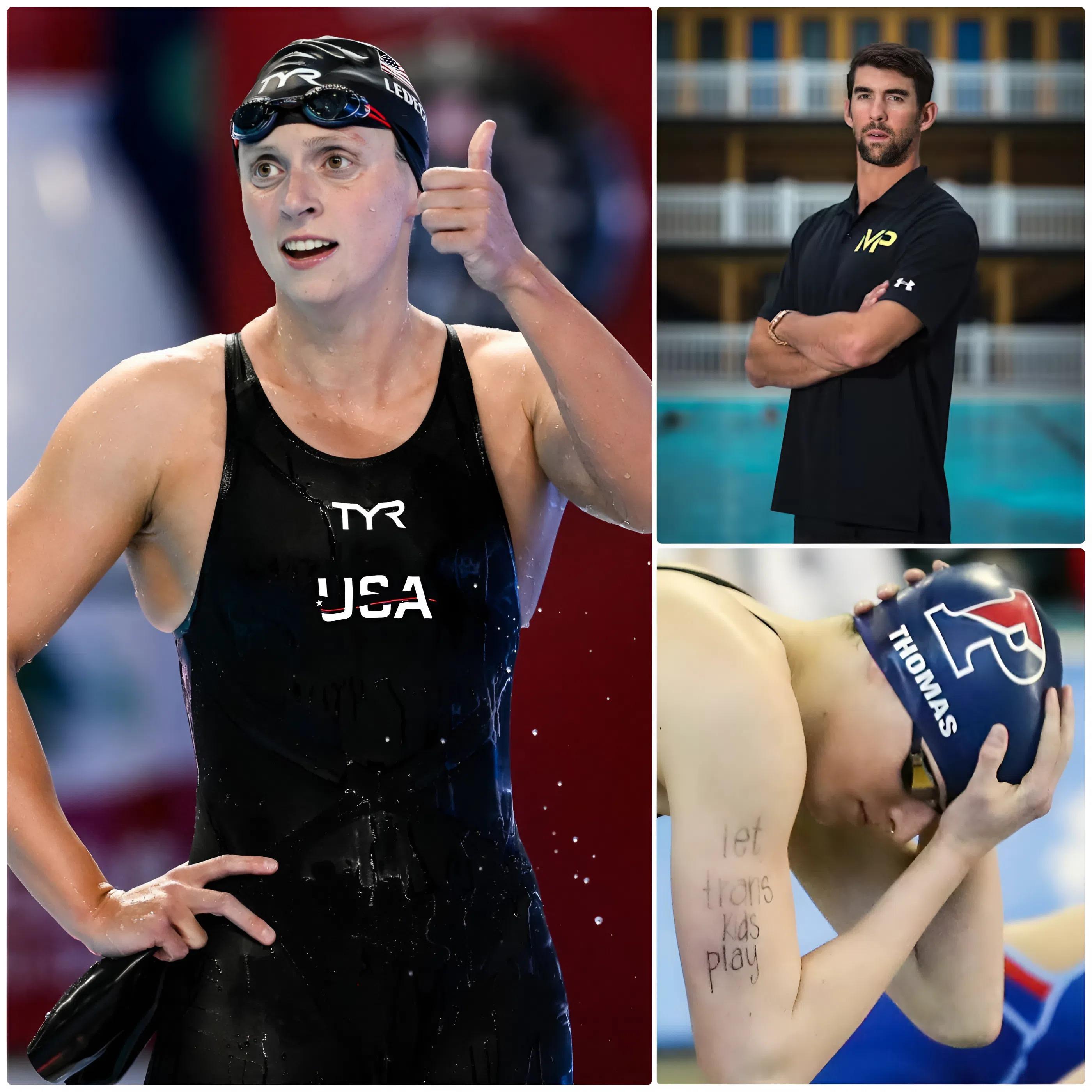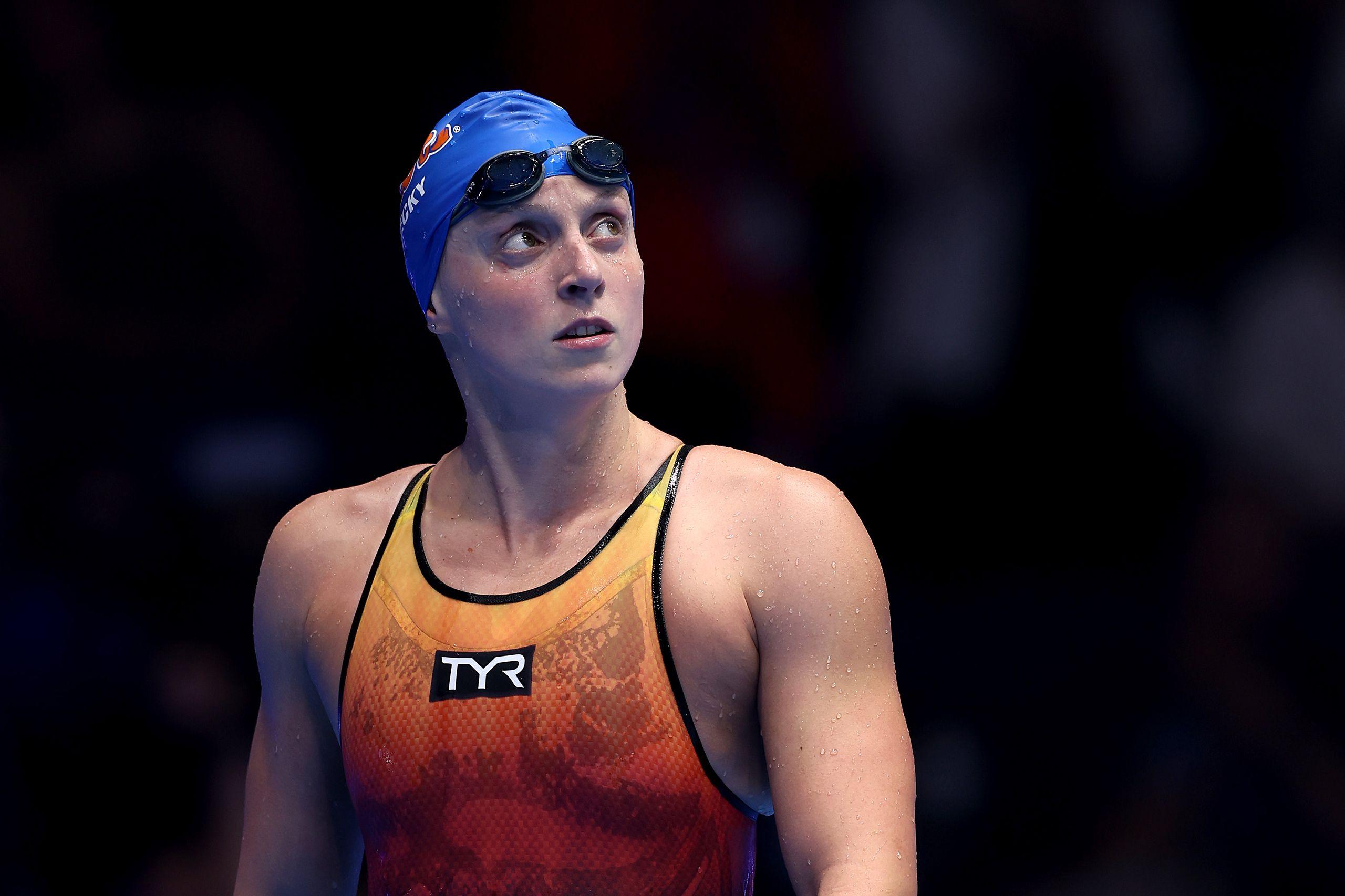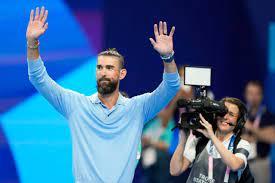Katie Ledecky and Michael Phelps spark global shockwaves with explosive statements about the Lia Thomas controversy

Katie Ledecky, one of the most decorated swimmers in Olympic history, sparked a storm in the sports world with a statement that stunned fans, athletes, and officials. Known for her calm demeanor in and out of the pool, Ledecky unleashed words that carried the weight of a bombshell. She declared, “I would refuse to compete as an American if Lia Thomas were there. It would be unfair because she’s not a real woman.” The remark immediately set off a chain reaction of heated debate on social media, sports networks, and the international press. What followed, however, was even more explosive, as Michael Phelps entered the conversation with a statement that not only shocked Ledecky but reportedly left Lia Thomas in tears.
The issue of transgender athletes competing in elite sports has long been one of the most divisive debates, but when figures of magnitude such as Ledecky and Phelps weigh in, the conversation takes on a whole new level of gravity. Ledecky’s outspoken refusal to compete in a competition featuring Thomas was seen by many as courageous and controversial. Her words, captured and distributed over a matter of minutes, drew sharp criticism from advocacy groups who accused her of discrimination, while others praised her for speaking what they considered “hard truths” about the fairness of women’s sports.

Michael Phelps, the most decorated Olympian in history, initially remained silent as the storm brewed, but when pressed during an interview, he decided to break his silence in a way no one expected. Known for his carefully measured responses throughout his career, Phelps abandoned diplomacy and made a thunderous statement. According to reports, Phelps stated that while he respected every athlete’s right to compete, he also believed there should be clear and universally accepted biological standards in sports. His exact phrasing hit home: “We’re lying to ourselves if we ignore the biological advantages. If this continues, we’re not protecting women’s sports, and it’s not fair to athletes like Katie.” Witnesses claimed the statement not only stunned Ledecky—who may not have anticipated such an open lineup—but also brought Lia Thomas to tears, as she has endured relentless criticism since emerging onto the NCAA swimming scene.
The fallout was immediate and global. Major sports outlets around the world picked up the story within hours, transforming the Ledecky-Phelps-Thomas triangle into front-page headlines. Fans were divided into polarized camps: one side praising Ledecky and Phelps for “standing up for women’s sports,” and the other side condemning their remarks as harmful and exclusionary. On Twitter, hashtags supporting both sides trended simultaneously, with #standwithkatie and #SupportLia battling for dominance. Facebook threads ballooned with millions of comments, making it one of the most emotionally charged sports controversies in recent memory.
For Lia Thomas, the spotlight has once again become a source of recognition and unbearable pressure. Having already faced waves of criticism throughout her career, the words of two of the greatest Olympians in history could not have hit harder. Sources close to her say she felt “betrayed” and “devastated,” as the validation she had sought in the elite swimming community now seemed further away than ever. Thomas’s supporters argue that her achievements are legitimate and that the backlash is rooted in prejudice rather than science. Yet opponents insist the integrity of women’s competition is at stake.

What makes this controversy particularly powerful is the collision of three narratives: Katie Ledecky, the undisputed queen of distance swimming; Michael Phelps, the all-time Olympic legend; and Lia Thomas, a pioneer and lightning rod for the transgender debate. Their clash has crystallized a culture war that extends far beyond swimming. The International Olympic Committee and governing bodies like FINA are once again under pressure to review their policies, as the world watches this drama unfold with intense intensity.
Ultimately, what began as a single sentence from Ledecky snowballed into an international reckoning. With Phelps adding fuel to the fire, the debate now boasts two of the sport’s greatest icons wielding a stance that is unlikely to reshape the conversation for years to come. Lia Thomas’s tears, Katie Ledecky’s stunned silence, and Michael Phelps’s roaring words have coalesced into a spectacle the sports world cannot ignore.
This isn’t just about swimming anymore; it’s about the very future of equity, inclusion, and identity in global athletics. And with the world’s eyes fixed on three names—Ledecky, Phelps, and Thomas—the story is far from over.